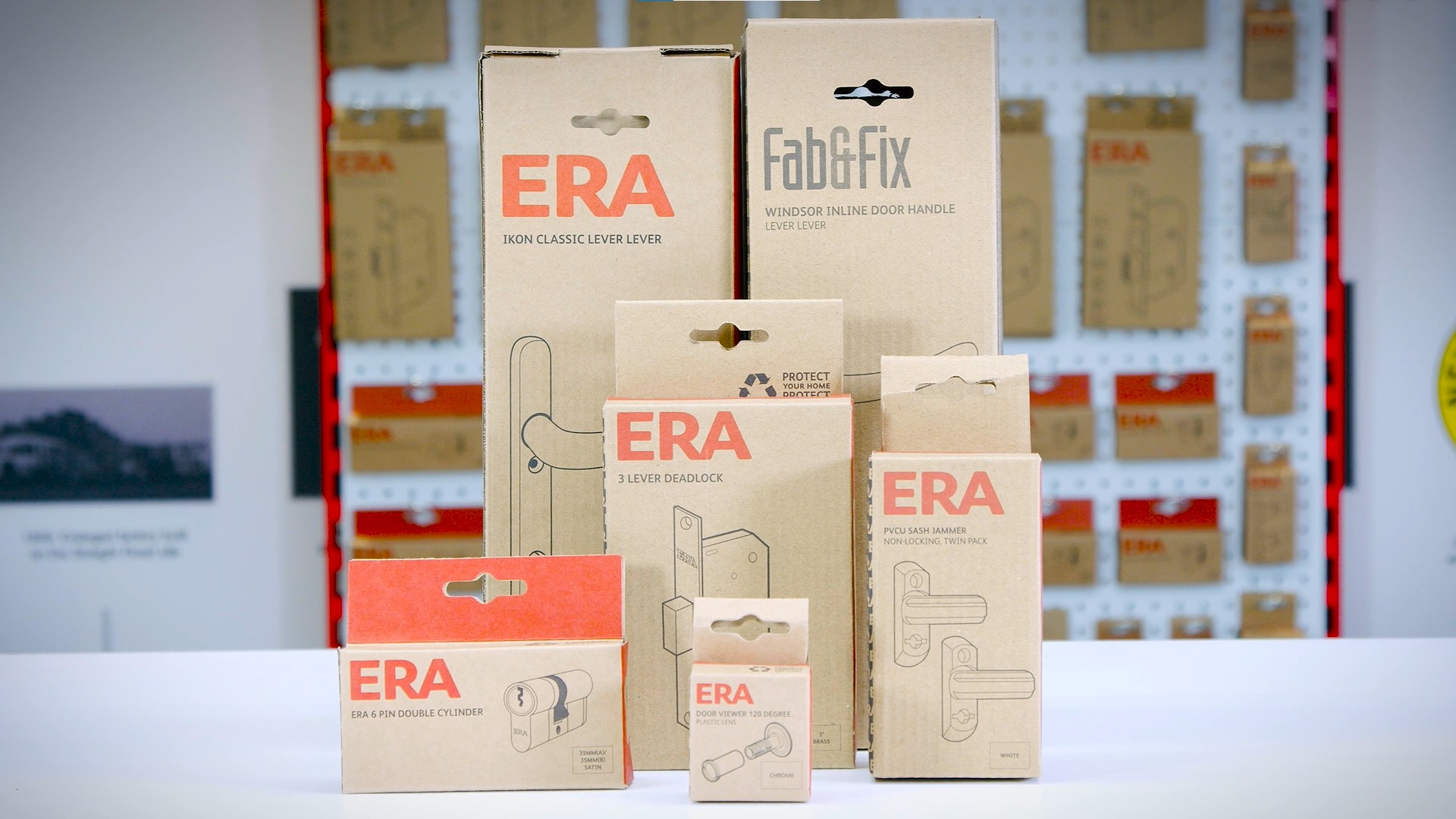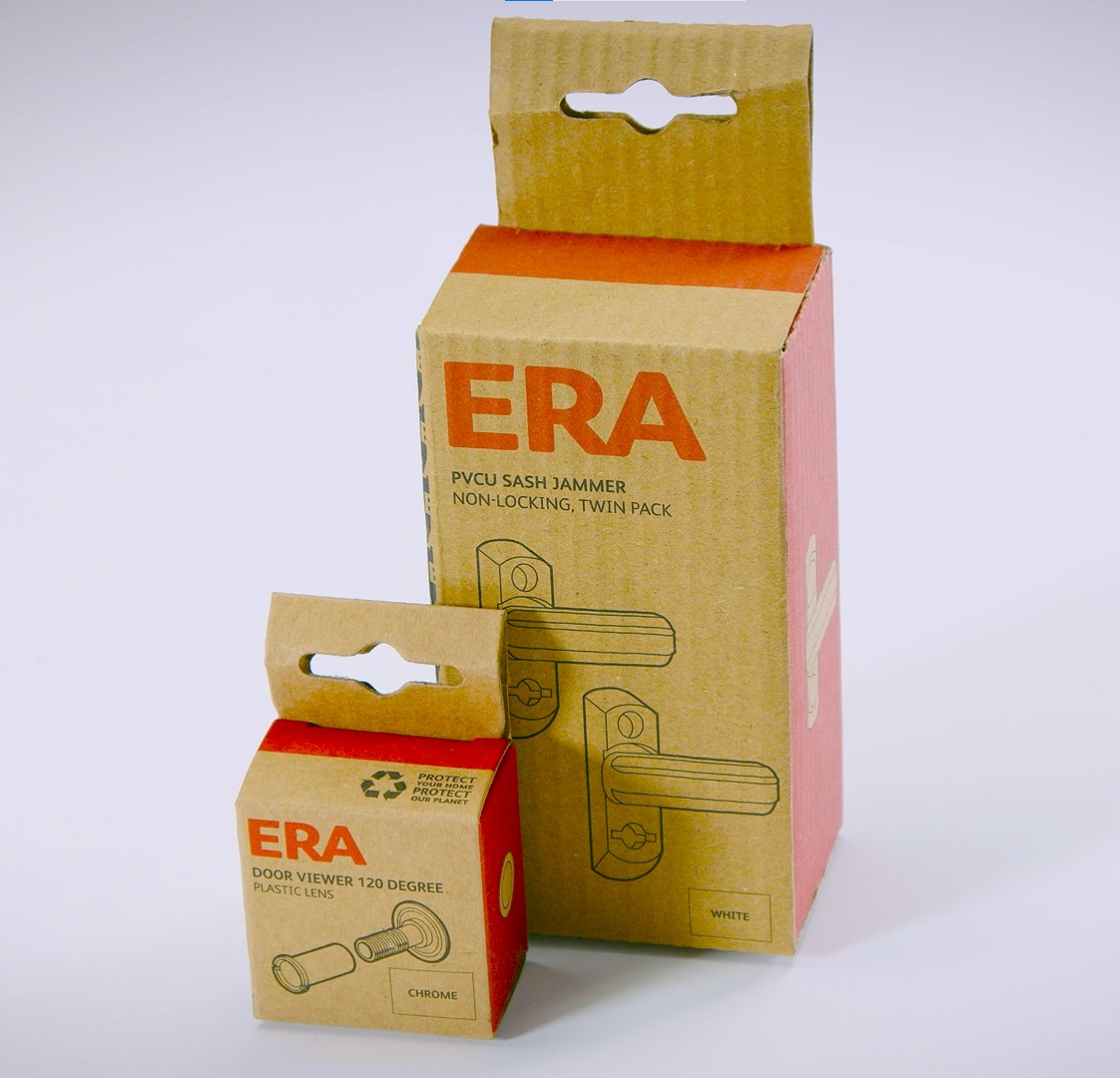ERA introduces new sustainable packaging
ERA, one of the UK’s leading home security and fenestration component providers, is proactively improving the sustainability of its products by introducing cardboard packaging that is fully recyclable from 1st April 2023. The newly designed cardboard packaging features euro hooks that enable merchants to stock its extensive portfolio of hardware within retail displays in the same way as its previous plastic clamshell and bag packaging.
Every aspect of the recyclable packaging has been carefully considered to ensure it is fully recyclable, without reducing the level of protection the product receives. This includes the box colour and reduced use of ink, in addition to the plastic bags previously found inside the packaging being replaced with paper bags.
The unveiling of ERA’s new packaging reflects its continued commitment to improving the sustainability of its own operations and supply chain. It also forms part of ERA’s parent company, Tyman’s wider 2030 Sustainability Roadmap, which outlines proactive measures to minimise its impact on the environment.
As part of the Roadmap, Tyman has committed to achieving 100% sustainable packaging by 2026 and have pledged to eliminate waste to landfill by the same year.

Jonathan Garrett, Group Health, Safety and Sustainability Director at Tyman, said: “As a leading supplier of engineered door and window components, we are conscious of the responsibility we have to not only improve the sustainability of our products and operations, but to support our extensive network of customers in enhancing their own environmental credentials. Our new range of retail packaging is a small step in our much larger ‘eliminate, minimise, replace’ strategy, which outlines how we can increase the level of recycled material within our packaging, whilst simultaneously reducing the level of packaging required.”
Following the introduction of the Plastic Packaging Tax (PPT) in April 2022 and Extended Producer Responsibility (EPR) on 1st January 2023, ERA has been proactively supporting its distribution partners in achieving compliance with the latest legislative requirements to achieve a collective reduction in the production and consumption of plastic throughout the entire supply chain.

